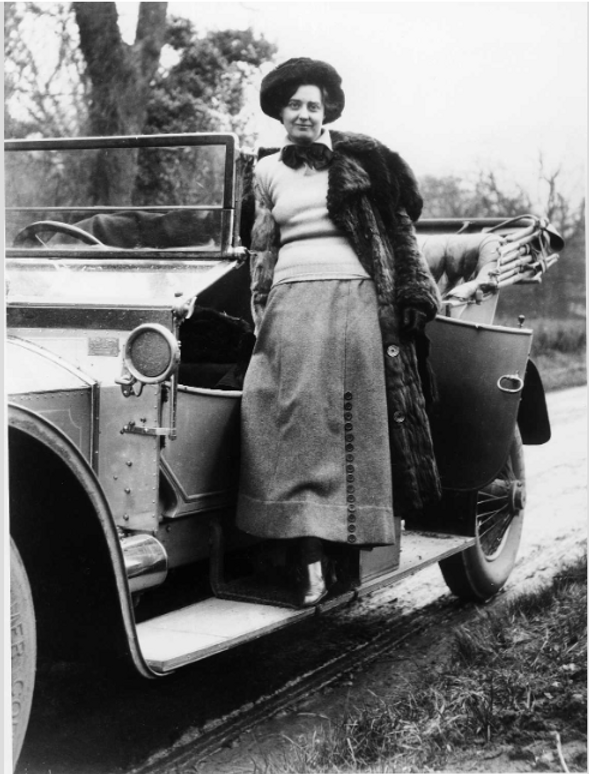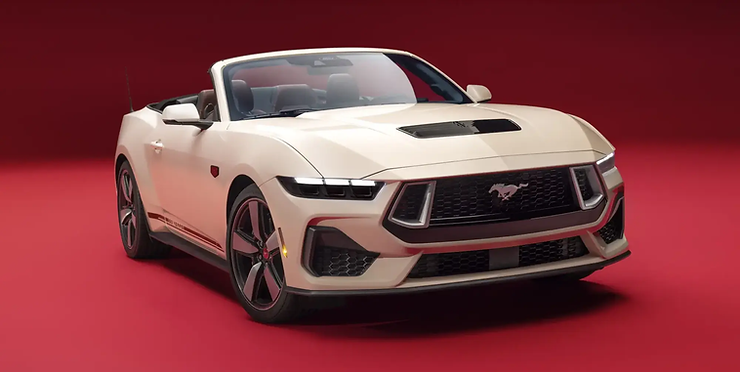**Titular:** *Goodwood, Rolls-Royce Expand Green Alliance*
**Intro:**
Goodwood Estate and Rolls-Royce Motor Cars are deepening their 20-year environmental partnership with initiatives to bolster biodiversity. Projects include wildflower propagation, rare bat research, pollinator support, and tree planting—benefiting local ecosystems and communities. Over 20,000 trees have already been planted, aligning with shared sustainability goals.
**Factbox:**
– **20,000+ trees** planted since 2001.
– **Barbastelle bats**: 2023 study on migration patterns.
– **Wildflower harvester** aids seed collection.
– **250,000-bee apiary** at Rolls-Royce HQ.
– **Strategic Wildlife Corridor** links habitats.
– **12,000-acre estate**: organic farming, rare species focus.
**Goodwood Estate y Rolls-Royce Motor Cars Amplían su Alianza Ambiental para Proteger la Biodiversidad y la Comunidad Local**
La colaboración entre **Goodwood Estate** y **Rolls-Royce Motor Cars**, dos íconos británicos con una visión compartida de sostenibilidad, se fortalece con nuevas iniciativas ambientales diseñadas para proteger y enriquecer la biodiversidad, beneficiando tanto a la flora y fauna local como a la comunidad de West Sussex.
—
### **Una Alianza con Historia y Propósito**
Desde 2001, cuando Rolls-Royce eligió el Goodwood Estate como sede global, ambas entidades han trabajado en armonía con el entorno. Con más de **20,000 árboles plantados** en las últimas dos décadas, la relación se ha centrado en prácticas sostenibles y conservación. El compromiso se extiende ahora con proyectos innovadores que refuerzan su legado ecológico:
– **Reforestación estratégica**: Uso de especies nativas y olmos resistentes a enfermedades, cultivados a partir de esquejes del propio Goodwood.
– **Sin plásticos**: Eliminación de protectores plásticos para árboles, priorizando materiales biodegradables.
– **Corredores de vida silvestre**: Integración del complejo de Rolls-Royce en el *Strategic Wildlife Corridor* del Consejo de Chichester.
—
### **Proyectos Clave para un Futuro Sostenible**
#### 1. **Estudio de Murciélagos Barbastelle**
En colaboración con un quiropterólogo local, se investigan los patrones de vuelo de esta especie rara y esquiva. Los hallazgos ya han influido en la ruta del corredor ecológico, conectando los refugios de los murciélagos con zonas de alimentación en Chichester Harbour.
#### 2. **Cosechadora de Semillas de Flores Silvestres**
Rolls-Royce ha apoyado la adquisición de una cosechadora mecanizada para recolectar semillas de diversas especies. Estas se utilizarán para restaurar praderas en el Estate y alrededores de la fábrica, promoviendo hábitats ricos en polinizadores.
#### 3. **Apiario Rolls-Royce y Jardín de Vida Silvestre**
El famoso apiario de la marca alberga **250,000 abejas europeas**, vitales para la polinización. El jardín renovado sirve como refugio y punto clave en el corredor ecológico.
#### 4. **Setos Tradicionales para Conectar Hábitats**
Voluntarios de Rolls-Royce han plantado setos nativos con técnicas ancestrales, creando vínculos entre ecosistemas y fuentes de alimento para la fauna local.
—
### **Compromiso con la Comunidad y el Legado Natural**
El Goodwood Estate, gestionado por la familia Richmond desde 1697, es un referente en agricultura orgánica y conservación. Con 4,900 acres de bosques y técnicas de manejo tradicionales, alberga ecosistemas únicos. La ampliación de la fábrica de Rolls-Royce, diseñada con criterios sostenibles, refleja su filosofía:
> *”Nuestra relación con Goodwood siempre ha girado en torno a la sostenibilidad. Juntos, preservamos un paisaje extraordinario para las generaciones futuras”* — **Torsten Müller-Ötvös, CEO de Rolls-Royce Motor Cars**.
Por su parte, **Lloyd McNeill**, director del Goodwood Estate, destaca:
> *”Esta colaboración no solo protege especies amenazadas, sino que crea un entorno disfrutable para visitantes y residentes”*.
—
### **Hacia un Futuro Verde**
La ampliación de esta alianza subraya cómo el lujo y la sostenibilidad pueden coexistir. Con proyectos en marcha hasta 2023 y más allá, Goodwood y Rolls-Royce demuestran que la innovación industrial y la conservación ambiental son pilares complementarios para un legado duradero.
**#Biodiversidad #Sostenibilidad #LujoResponsable**
—
*Este contenido destaca la sinergia entre herencia natural y progreso, ideal para audiencias interesadas en sostenibilidad, lujo y conservación ambiental.*
**FAQs: Goodwood Estate & Rolls-Royce Environmental Collaboration**
1. **What environmental initiatives are included in the extended partnership between Goodwood Estate and Rolls-Royce?**
The collaboration focuses on biodiversity projects like wildflower propagation, rare bat studies, bee conservation, tree planting (20,000+ trees), hedgerow restoration, and support for a mechanized wildflower seed harvester to enhance local ecosystems.
2. **How long have Goodwood Estate and Rolls-Royce collaborated on sustainability efforts?**
The partnership began in 2001 when Rolls-Royce established its headquarters at Goodwood, with shared environmental goals formally extended through new biodiversity projects announced in 2023.
3. What rare species is the partnership currently researching?**
They are studying Barbastelle bats, a rare species, to map their flight patterns between Goodwood Estate and Chichester Harbour, influencing the Strategic Wildlife Corridor’s design.
4. **How does the partnership address plastic waste in its tree-planting initiatives?**
No single-use plastic tree guards are used; instead, sustainable methods prioritize native species and organic materials to minimize environmental impact.
5. **What is the Strategic Wildlife Corridor, and how is Rolls-Royce involved?**
This Chichester District Council-led project connects habitats for wildlife. Rolls-Royce volunteers planted native hedgerows at their Wildlife Garden, linking the Estate to critical habitats within the corridor.
6. **How has the partnership directly benefited local pollinators like bees?**
Rolls-Royce’s Apiary houses 250,000 European honeybees, while wildflower planting and seed harvesting initiatives provide diverse forage, supporting pollinator populations crucial to ecosystem health.
7. **What role does the new mechanized wildflower seed harvester play?**
The custom harvester efficiently collects seeds from diverse wildflowers on the Estate, enabling large-scale replanting to restore grasslands and boost biodiversity around Rolls-Royce’s facilities.
8. **How many trees have been planted, and what species are prioritized?**
Over 20,000 trees, mostly native broadleaf species, have been planted, including disease-resistant elms propagated from Estate cuttings, enhancing the South Downs National Park’s ecology.
9. **How does Goodwood Estate’s land management support biodiversity?**
Its 12,000 acres use traditional techniques to create varied habitats, including organic farming, 4,900 acres of woodland, and sustainable practices that protect endangered species and landscapes.
10. **What community benefits arise from this collaboration?**
Projects improve local green spaces, create wildlife habitats, and promote eco-tourism, offering educational and recreational opportunities for residents and visitors while safeguarding natural heritage.
11. **Why was Goodwood Estate chosen as Rolls-Royce’s headquarters?**
The Estate’s natural beauty and shared environmental values aligned with Rolls-Royce’s sustainability vision, influencing its 2001 selection as the brand’s global manufacturing and design hub.
12. **How does the Barbastelle bat study influence conservation efforts?**
Findings on their migration routes prompted adjustments to the Wildlife Corridor’s path, ensuring protection of their roosts and feeding grounds, aiding regional biodiversity strategies.
13. **What future goals does the expanded partnership prioritize?**
Focus areas include enhancing rare species protection, expanding wildflower meadows, continuing bat research, and increasing community engagement through habitat restoration and educational programs.
14. **How is Rolls-Royce’s headquarters designed sustainably?**
The facility incorporates a Wildlife Garden, Apiary, and eco-conscious construction practices, aligning with its goal to be a leader in wildlife protection and low-impact manufacturing.
15. **What makes this partnership a model for corporate-environmental collaboration?**
By combining Rolls-Royce’s innovation with Goodwood’s land stewardship, the projects demonstrate scalable solutions for biodiversity, community engagement, and sustainable industry practices, setting a benchmark for others.
**CTA:**
*¿Listo para ser parte de un legado sostenible?*
Descubra cómo empresas, comunidades y la naturaleza pueden prosperar juntas. Visite los sitios web de [Goodwood Estate](https://www.goodwood.com) y [Rolls-Royce Motor Cars](https://www.rolls-roycemotorcars.com) para conocer más sobre sus iniciativas ambientales, o únase a esfuerzos locales de conservación en su área. ¡El futuro verde comienza con acciones hoy!
**Conclusión:**
La alianza entre Goodwood Estate y Rolls-Royce Motor Cars demuestra que el progreso industrial y la preservación ambiental no son excluyentes, sino complementarios. Con más de 20.000 árboles plantados, corredores de vida silvestre estratégicos y proyectos pioneros como el estudio de murciélagos Barbastelle, esta colaboración redefine el rol de las empresas en la protección del planeta. Su visión compartida no solo enriquece la biodiversidad de West Sussex, sino que sienta un precedente global: la sostenibilidad es un compromiso vivo, arraigado en acciones concretas y en la creencia de que el legado más valioso es un mundo en equilibrio.
**Agradecimiento:**
Un reconocimiento especial a los equipos de Goodwood Estate y Rolls-Royce Motor Cars, cuyos esfuerzos incansables impulsan este compromiso ambiental. Gracias también a los voluntarios, a Chichester District Council, al quiropterólogo local y a la comunidad de West Sussex por su colaboración activa. Juntos, están tejiendo un futuro donde la industria y la naturaleza coexisten en armonía, inspirando a otros a seguir su ejemplo. 🌿✨
—
*¿Te inspiró esta iniciativa? Comparte esta historia y ayuda a sembrar conciencia.* 🌍💚





